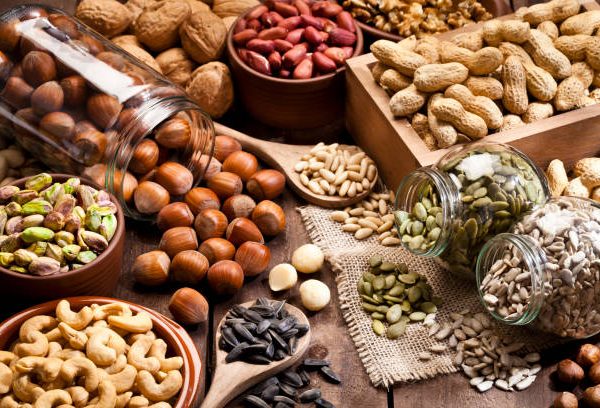Raw products, specifically in the context of seeds, refer to seeds that have not been processed, cooked, or altered in any significant way after harvesting. These seeds are in their natural state, just as they are found in nature or as they are harvested from the plant. The term “raw” emphasizes that the seeds have not been subjected to treatments such as roasting, baking, boiling, or any form of chemical processing that could change their nutritional content, flavor, texture, or appearance.
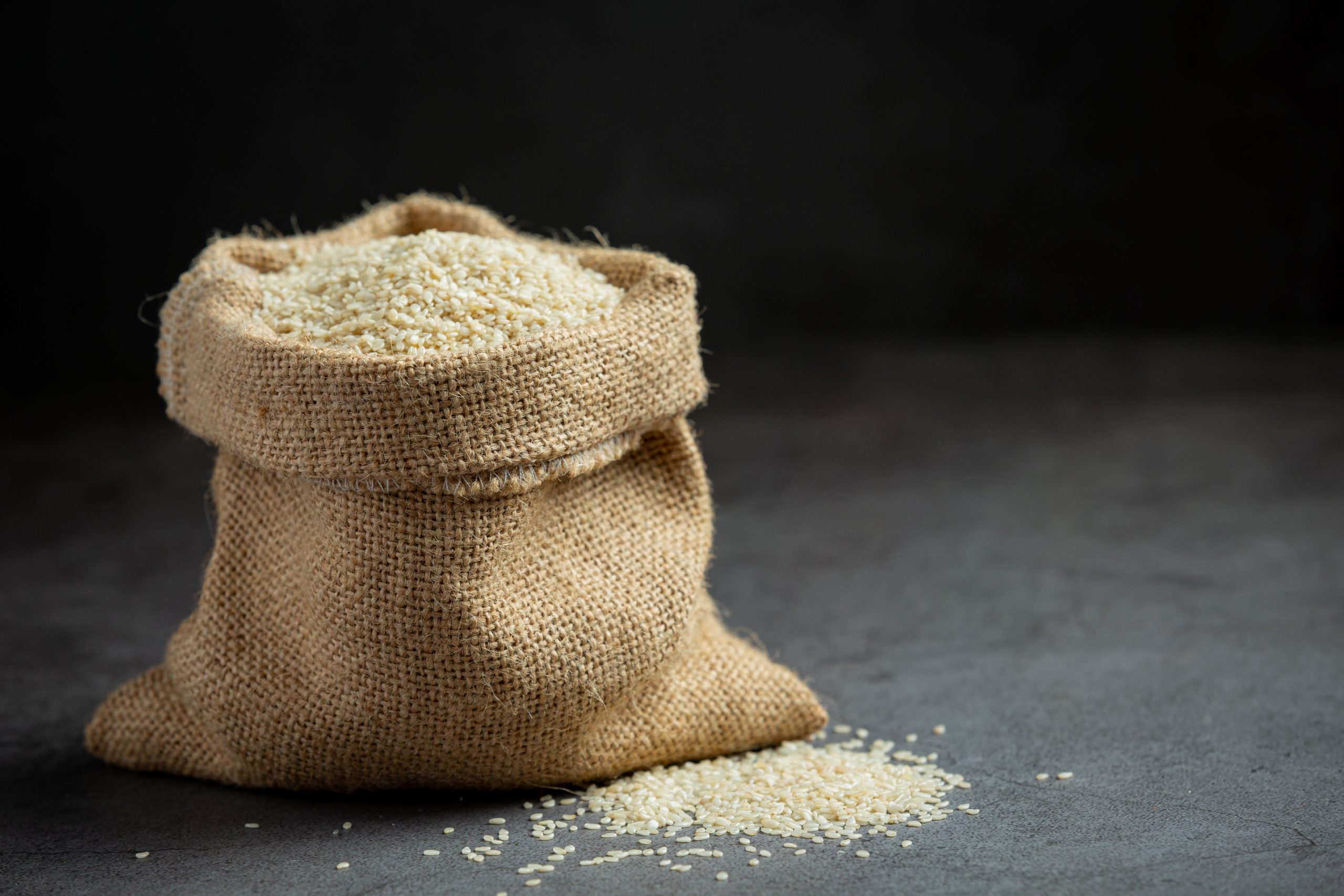
Raw Products
Raw products, specifically in the context of seeds, refer to seeds that have not been processed, cooked, or altered in any significant way after harvesting. These seeds are in their natural state, just as they are found in nature or as they are harvested from the plant. The term "raw" emphasizes that the seeds have not been subjected to treatments such as roasting, baking, boiling, or any form of chemical processing that could change their nutritional content, flavor, texture, or appearance.
Characteristics of Raw Seeds
Nutritional Integrity: Raw seeds retain their original nutritional profile, including vitamins, minerals, enzymes, fats, and proteins. The lack of processing means that none of these vital nutrients are lost or diminished.
Natural State: They are free from added ingredients such as salts, sugars, oils, or preservatives that are often introduced during processing.
Versatility: Raw seeds can be used in various culinary applications, including as toppings for salads, blended into smoothies, mixed into yogurt or oatmeal, or simply consumed as a snack. They can also be sprouted to enhance their nutritional value and digestibility.
Sesame Seeds Variety
Sesame seeds are small, oil-rich seeds from the Sesamum indicum plant, a flowering plant native to Africa and parts of the Indian subcontinent. They are one of the oldest oilseed crops known, cultivated for over 3,000 years due to their resilience in arid conditions where other crops may fail. Sesame seeds are highly valued for their oil, which is exceptionally stable and resistant to rancidity, and for their nutritional benefits.
Characteristics of Sesame Seeds
Appearance: They are tiny, flat seeds, typically around 3 to 4 mm in length. They come in various colors, including white, black, red, and brown, depending on the cultivar.
Flavor: Sesame seeds have a nutty, slightly sweet flavor. Toasting them enhances their taste and aroma, making them a popular ingredient in many culinary traditions worldwide.
Culinary Uses: Sesame seeds are used in a wide array of dishes. They can be sprinkled on bread and pastries, added to salads and stir-fries, or ground into a paste called tahini, which is a key ingredient in hummus and other Middle Eastern dishes. Sesame oil, extracted from the seeds, is used for cooking and as a flavor enhancer in Asian cuisine.
Nutritional Profile: They are rich in healthy fats, protein, B vitamins, minerals (such as calcium, magnesium, iron, and zinc), and antioxidants. Their oil content is primarily composed of unsaturated fatty acids, which are beneficial for heart health.
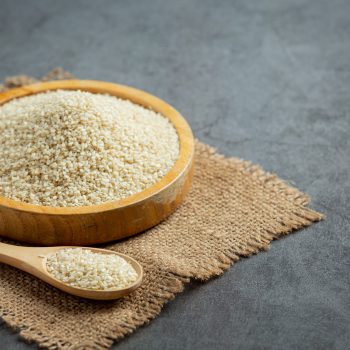
Sesame Seeds White
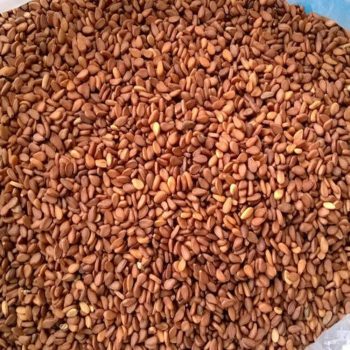
Sesame Seeds Reddish
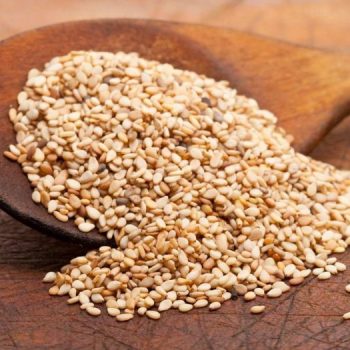
Sesame Seeds Mixed
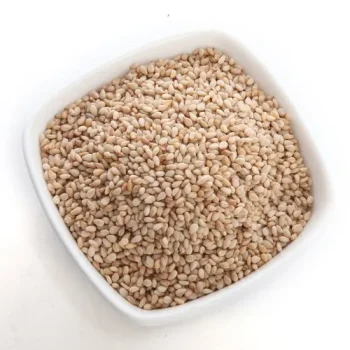
Commercial White Sesame Seeds
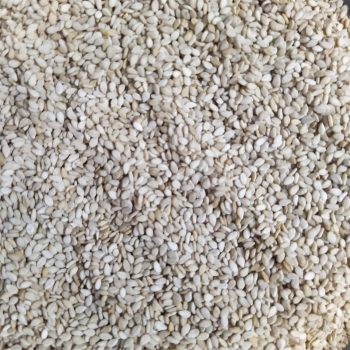
Gadarif White Sesame Seeds
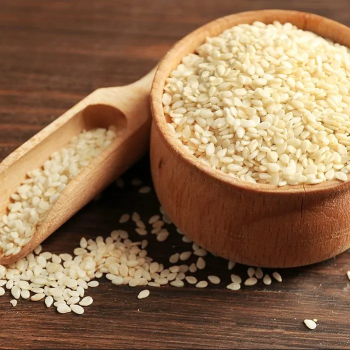
Hulled Sesame Seeds
Gum Arabic Hashab
Gum Arabic, specifically the “Hashab” variety, is a natural gum made of the hardened sap extracted from the Acacia senegal tree, which is primarily found in the Sahel region of Africa, spanning from Senegal to Somalia. This gum is highly valued for its unique properties and has been used for centuries in food, pharmaceuticals, and industrial applications.
Benefits of Gum Arabic Hashab
Dietary Fiber: Being a natural source of dietary fiber, it can aid digestion and promote gut health.
Non-Allergenic: It is considered safe and non-allergenic for most people, making it a preferred additive in foods and drinks.
Sustainable Source: The Acacia senegal trees that produce Hashab gum are drought-resistant and play a crucial role in Sahelian agroforestry practices, helping to combat desertification.
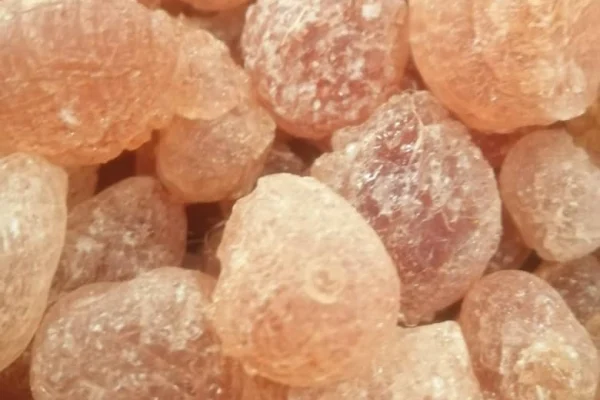
Watermelon Seeds
Watermelon seeds are the small, black or dark brown seeds found in watermelons, which are fruits of the plant Citrullus lanatus. While many people tend to discard them when eating watermelon, these seeds are actually edible and highly nutritious. They can be consumed raw, sprouted, or roasted, and they offer a variety of health benefits.
Health Benefits of Watermelon Seeds
Heart Health: The magnesium in watermelon seeds can help regulate blood pressure and enhance heart health.
Immune Support: Zinc and iron are crucial for maintaining strong immunity and promoting wound healing.
Energy Production: The B vitamins in watermelon seeds play a key role in converting food into energy.
Digestive Health: Being a good source of dietary fiber, watermelon seeds can aid in digestion and prevent constipation.
Nutritional Profile of Watermelon Seeds
Watermelon seeds are rich in nutrients, including:
Proteins: They are a good source of plant-based protein, essential for building and repairing tissues.
Fats: The seeds contain healthy fats, including unsaturated fatty acids that can help improve heart health.
Vitamins: They provide B vitamins, especially niacin, thiamine, folate, and riboflavin, which are essential for many bodily functions, including energy metabolism and brain health.
Minerals: Rich in minerals like magnesium, phosphorus, iron, potassium, sodium, and zinc, watermelon seeds support bone health, muscle function, and the immune system.
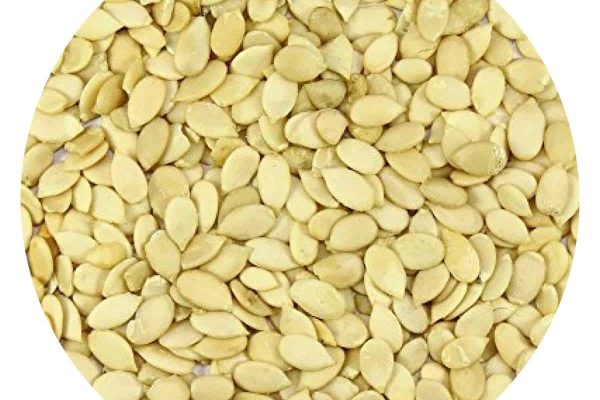
Peanut Kernels
Peanut kernels refer to the edible seeds of the peanut plant (Arachis hypogaea), which is a legume crop grown primarily for its seeds. Despite being called nuts, peanuts actually belong to the legume family, along with beans, lentils, and peas. The kernels are the shelled, edible part of the peanut, usually found inside the hard exterior shell. They can be consumed raw, roasted, or used as an ingredient in various culinary preparations.
Health Benefits of Peanut Kernels
Heart Health: The healthy fats in peanuts can help lower cholesterol levels and reduce the risk of heart disease.
Weight Management: Despite being high in calories, peanuts have a satiating effect that can help in weight management when consumed in moderation.
Blood Sugar Control: Peanuts have a low glycemic index, which means they help in maintaining stable blood sugar levels.
Nutritional Profile of Peanut Kernels
Peanut kernels are rich in essential nutrients, including:
Proteins: They are a good source of plant-based protein, important for muscle building and repair.
Healthy Fats: Peanuts contain monounsaturated and polyunsaturated fats, which are beneficial for heart health.
Vitamins: They provide a variety of vitamins, such as B vitamins (niacin, thiamine, riboflavin, and folate) and vitamin E, which are crucial for energy metabolism, brain function, and skin health.
Minerals: Rich in minerals like magnesium, phosphorus, potassium, and zinc, peanuts support bone health, energy production, and immune function.
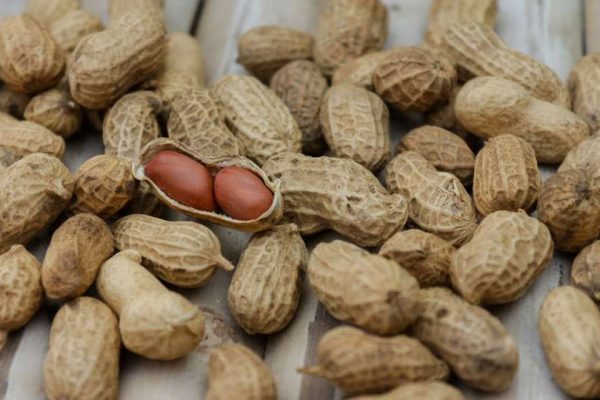
Pigeon Pea
Pigeon pea (Cajanus cajan) is a perennial legume from the family Fabaceae. Known for its durability, the pigeon pea can thrive in harsh and nutrient-poor soil conditions, making it a valuable crop in many parts of the world, particularly in tropical and subtropical regions. It is widely cultivated in India, Africa, and Central America, among other places, and serves multiple purposes: as a food source, a cover crop for soil improvement, and even as fodder for animals.
Health Benefits of Pigeon Pea
Rich in Protein: Supports muscle building and repair.
High Fiber Content: Aids in digestion and helps prevent constipation.
Antioxidant Properties: Contains flavonoids and saponins that help combat oxidative stress.
Heart Health: The presence of potassium helps regulate blood pressure, while dietary fiber can lower cholesterol levels.
Supports Weight Management: High fiber content contributes to a feeling of fullness, helping control appetite.
Blood Sugar Regulation: Low glycemic index and high fiber content help manage blood sugar levels, beneficial for people with diabetes.
Boosts Immune System: Vitamins and minerals in pigeon peas support overall immune function.
Nutritional Profile of Pigeon Pea
Calories: Approximately 120-130 kcal
Protein: 6-7 g
Carbohydrates: 21-25 g
Dietary Fiber: 6-8 g
Fat: Less than 1 g
Vitamin C: 1-2 mg
Thiamin (B1): 0.2 mg
Niacin (B3): 2 mg
Folate (B9): 100-150 µg
Potassium: 400-500 mg
Phosphorus: 150-200 mg
Magnesium: 30-40 mg
Calcium: 30-40 mg
Iron: 1-2 mg
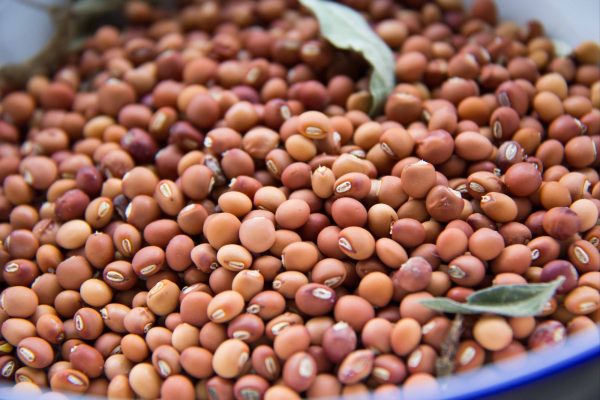
Baobab Powder
Baobab powder is a nutritional supplement made from the fruit of the baobab tree (Adansonia digitata), which is native to Africa, Madagascar, Australia, and the Arabian Peninsula. The baobab tree is often referred to as the “Tree of Life” due to its longevity and utility. The powder is produced by harvesting the fruit, drying it naturally, and then grinding the dry pulp into a fine powder. This process retains the fruit’s nutritional content, making baobab powder a rich source of vitamins, minerals, fiber, and antioxidants.
Health Benefits of Baobab Powder
The rich nutritional profile of baobab powder offers several health benefits:
Enhances Immune Function: High vitamin C content supports the immune system.
Promotes Skin Health: Antioxidants and vitamin C help in collagen formation and skin elasticity.
Supports Digestive Health: High fiber content can improve digestive health and regulate bowel movements.
Energy Boost: Contains several key minerals and vitamins that can help improve energy levels.
Blood Sugar Control: The soluble fiber in baobab powder can help regulate blood glucose levels, making it beneficial for managing diabetes.
Nutritional Profile of Baobab Powder
Baobab powder is known for its high vitamin C content, dietary fibers, and antioxidants, along with a variety of essential minerals. Here’s a brief overview:
Vitamin C: Contributes to immune system health, skin health, and antioxidant protection.
Dietary Fiber: Aids in digestion and helps maintain a healthy gut. Baobab powder contains both soluble and insoluble fiber.
Antioxidants: High in antioxidants, which protect cells from oxidative stress and may reduce the risk of chronic diseases.
Minerals: Includes calcium, potassium, magnesium, and iron, which are vital for bone health, cardiovascular health, muscle function, and more.
Prebiotic Effects: The dietary fiber in baobab powder acts as a prebiotic, supporting the growth of healthy bacteria in the gut.
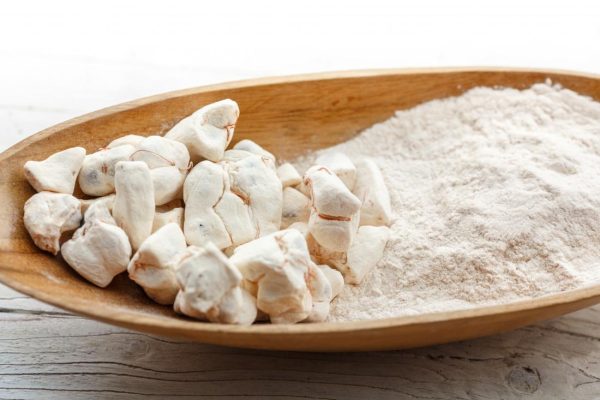
Baobab Oil
Baobab oil is a natural oil extracted from the seeds of the fruit that grows on the baobab tree (Adansonia digitata), which is native to Africa. The baobab tree is often called the “Tree of Life” due to its ability to store water in its trunk and withstand harsh drought conditions. The oil is obtained through cold pressing the seeds, a process that helps retain its nutritional and therapeutic properties. Baobab oil is renowned for its impressive array of uses and benefits, particularly in skincare and haircare.
Health Benefits of Baobab Oil
Moisturizing: Baobab oil is an excellent moisturizer for the skin, thanks to its ability to penetrate deeply without leaving a greasy residue. It helps to improve skin elasticity and encourages the regeneration of skin cells.
Healing Properties: The oil is used to treat various skin conditions, including dry skin, eczema, and psoriasis, due to its anti-inflammatory and soothing properties.
Anti-aging: Rich in antioxidants and vitamins, baobab oil helps to fight the signs of aging by reducing the appearance of fine lines and wrinkles, improving skin tone, and enhancing the skin’s natural barrier.
Hair Health: When applied to the hair, baobab oil can nourish and strengthen hair, reduce breakage, and provide moisture to dry scalp conditions.
Nutritional Profile of Baobab Oil
Baobab oil is rich in essential fatty acids, antioxidants, and vitamins:
Fatty Acids: It contains a high content of linoleic acid (omega-6), oleic acid (omega-9), and palmitic acid, which are crucial for maintaining healthy skin and hair.
Vitamins: High in vitamins A, D, E, and F, which are vital for skin rejuvenation and maintenance.
Antioxidants: The oil has a significant antioxidant content, including vitamin E and phytosterols, which help protect the skin against free radical damage and promote healing.


Other Raw Organic Foods
We also have a diverse range of other organic seed products available on our site.
